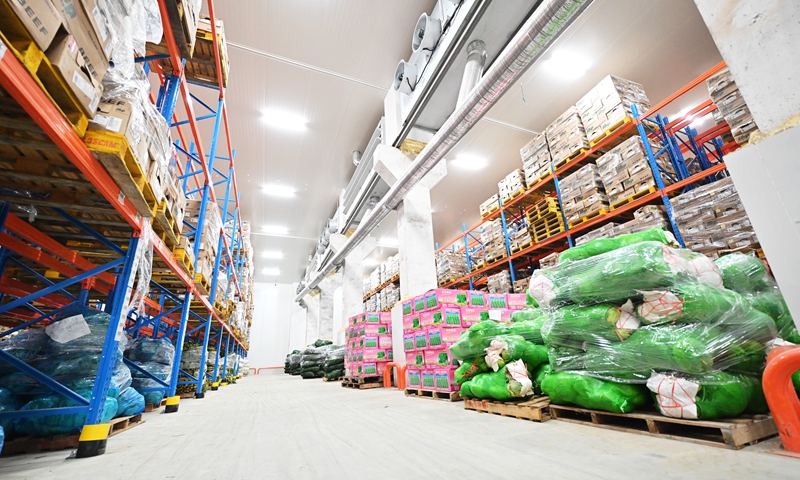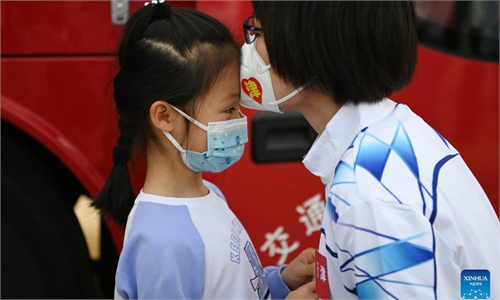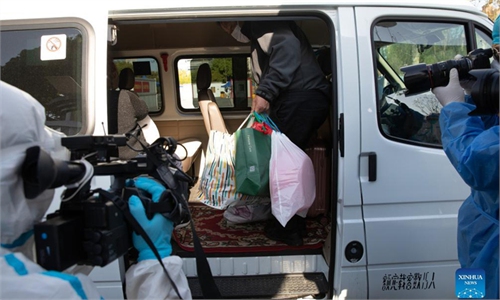China’s e-commerce giants ramp up food supply to city residents amid latest onset of Omicron

Pictured is a warehouse for vegetables in Fengxian district, Shanghai with a storage capacity of 1,200 tons of vegetables. Photo: VCG
Multiple Chinese e-commerce platforms including T-mall, JD.com and Pinduoduo have launched exclusive food-supply sites for the Omicron-hit residents in Shanghai. Food chains in southern Guangzhou city will also double their stock to prepare for the flare-up of the pandemic there.
JD.com on Friday released a vegetable pack priced at 120 yuan (18.85$) in Shanghai where 24 million residents have been locked down. A total of 10,000 packs will be available per day and will be open to order from 9 am each day. JD.com launched a live-streaming service focused on delivery of essential goods including 170 different items such as food, medical equipment and parenting goods.
T-mall and Pinduoduo both organized local food storage sites which will facilitate delivery to Shanghai residents within 48 hours.
Community grocery chain Miss Fresh has dispatched emergency supplies from Beijing, and Shanghai's neighboring Nanjing city, East China's Jiangsu Province, and Hangzhou city, East China's Zhejiang Province, whose daily supply volume reached 20,000 packs now.
Several major food delivery platforms such as Meituan and Ele.me joined the battle against coronavirus. The two delivery platforms both launched a "group order & delivery" service to secure food supplies to 4,500 residential communities in Shanghai.
As single-digit coronavirus infections are detected in Guangzhou city, South China's Guangdong Province, the city authorities vowed on Saturday to ensure the stable supply of food and goods to its residents in order to better cope with the flare-up.
Guangzhou city officials said the supply of vegetables, pork and other essential items remained sufficient, and will be distributed online as well as offline to the residents. The Guangzhou branch of Miss Fresh confirmed to local press that to prevent market price fluctuations, inventory of essential goods has increased to two to three times that of normal levels, and the number of delivery staff has tripled.
Global Times



